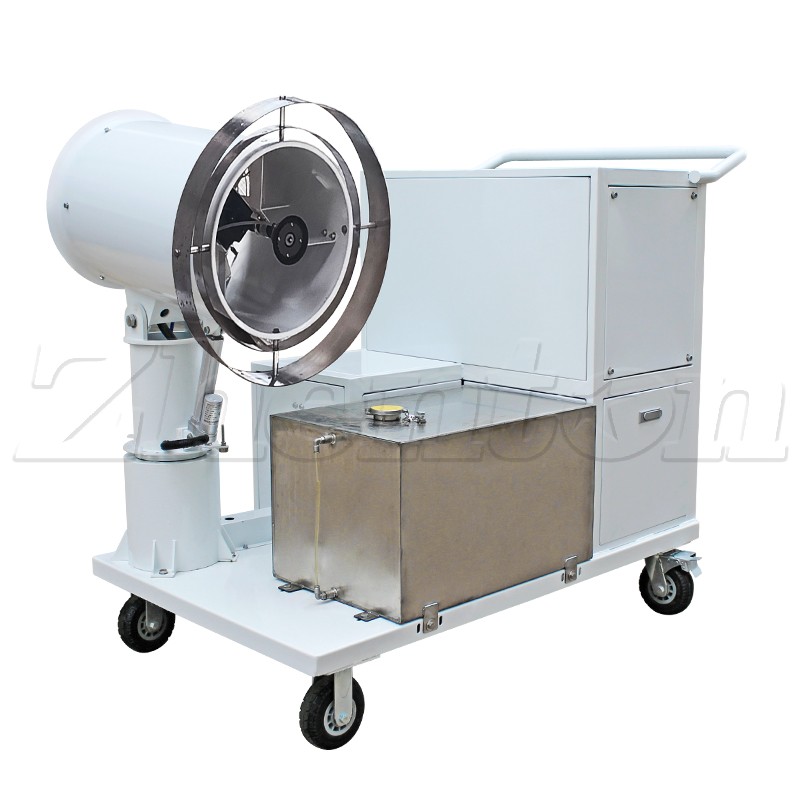
As an effective air purification and dust suppression device, mist cannon machines use water to generate atomized particles for dust reduction during operation. Poor water quality directly causes nozzle clogging and compromises dust suppression efficiency. Now, the editor from Zhenton Mist Cannon Machine will guide you through the water quality requirements for mist cannon machine operation.
Contaminants: Impurities in water, such as particles, minerals, and chemicals, can clog nozzles and impair the machine’s spraying performance. To avoid this, relatively pure water—such as deionized water or softened water—is generally recommended.
Sand Content Control: Water with high sand content accelerates wear on nozzles and pumps, reducing the equipment’s service life. According to manufacturers’ standards, the sand content of the incoming water should be controlled within a specific range, typically not exceeding 0.01%.
pH Value: An appropriate pH value minimizes corrosion to equipment materials, especially metal components. Neutral water (with a pH value between 6.5 and 7.5) is most ideal.
Hardness: High-hardness water easily causes nozzle scaling, which affects atomization efficiency and shortens nozzle lifespan. Use low-hardness water or adopt water softening treatment to meet the equipment’s requirements.

Microbial Content: Excessive bacteria and microorganisms in water may breed in the water tank, forming biofilms inside nozzles and pipelines and disrupting normal spraying. Regular cleaning and disinfection are therefore necessary.
Corrosion Considerations: Specific chemicals like chlorides can corrode the mist cannon’s materials, particularly metal parts. Controlling chloride content is crucial for equipment protection.
Temperature: Water temperature affects atomization performance; excessively high or low temperatures are unfavorable for water atomization. Normal temperature (approximately 15–25°C) is generally most suitable.
Color and Turbidity: Water color and turbidity are also key indicators of water quality. Clear and transparent water is more suitable for mist cannon machines, as it reduces clogging risks and maintains stable spraying performance.
When mist cannon machines are used outdoors, natural water sources such as lakes or rivers should be avoided, as these may contain high levels of impurities and microorganisms. In areas with poor water quality, water treatment equipment—such as reverse osmosis or ion exchange softening systems—can be installed to ensure water quality meets requirements.

Proper water quality not only ensures the mist cannon machine operates effectively but also extends its service life and reduces maintenance costs.
Contact With Us
If you have any questions please fell free to contact with us.